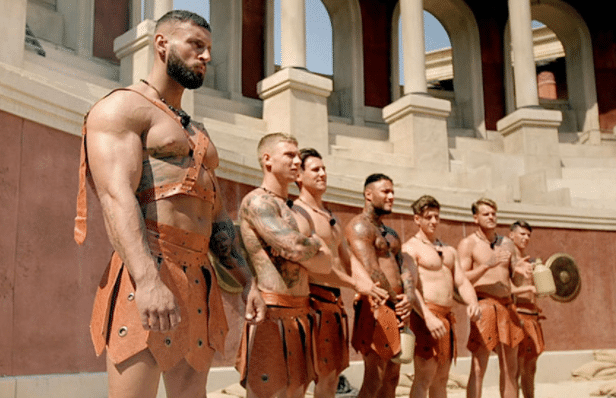
The Romans were #Masc4Masc long before Grindr even came up with the term
Gay sex in Ancient Rome was not only easy to come by, it was an accepted part of being a Roman – even in the army.
The Romans didn’t see being gay as bad or sinful. But they also didn’t exactly admire it altogether either.
While they didn’t necessarily punish homosexuality, they did look down on anyone who was the bottom in gay relationships.
Evidence suggests Roman society didn’t even see sexuality as a spectrum like we do today. They were essentially indifferent to sexual orientation.
Instead, they focused their prejudice on the submissive or feminine, or the bottom in gay relationships. Meanwhile they championed the dominance of tops or the person doing the fucking.
And it’s all down to the important role of class and slaves in Roman society.
Because it was perfectly acceptable for a Roman man to have sex with either a man or woman – so long as he was the top.

Where did Roman soldiers get their ‘Masc 4 Masc’ attitudes?
Dominance was at the very heart of what it meant to be a Roman.
By the time the first Roman Emperor Augustus came to power in 27 BCE, the Roman rule stretched across half of the known world.
Extending from Syria and Egypt in the east right across to Northern France and Germany in the west, Britain would come into the fold 70 years later under Emperor Claudius.
Rome achieved this dominance through centuries of ruthless wars and the subjugation of its neighbors which the Philosopher Friedrich Nietzsche refers to as ‘the will to power.’
And this power obsession fed into all parts of Roman society, especially sex.
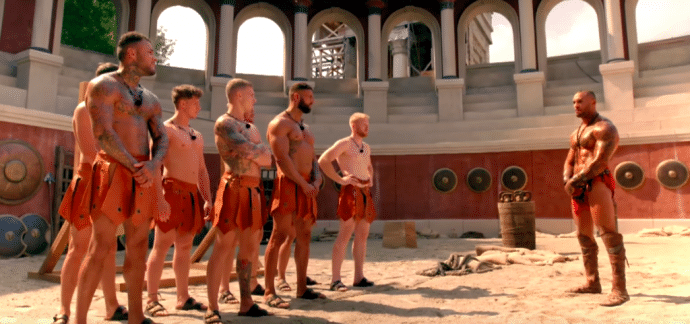
Masters and slaves
With all this newly conquered land came new subjects to boss around. And for many, that meant a life of slavery.
Romans would acquire or buy slaves to increase their status.
If you are looking for a modern equivalent, it may be crude, but consider how we today judge a person’s power and influence – by the number of followers they have.
Romans did the same, but unlike our social media followers, Roman slaves would literally follow their masters around. And being a slave came with the legal obligation to do whatever their master ordered of them.
Being the ‘top’ active partner was akin to being a ‘free’ man or the one charge. Whereas the guy getting fucked, the passive partner, was aligned with the likes of slaves.
And whether it was a sexual situation or not – the will or care of the slave was not really considered. The master would use his property as he saw fit.
Louis Crompton, suggests in his book Homosexuality and Civilisation that Roman gay relationships were completely focused on this dominance and the master vs slave dynamic.
But it gets even more complicated if your bottom was ‘free born’ – and therefore not a slave. That could be a problem in itself. They didn’t necessarily consider this to be a disgrace, but it was not as widely accepted.

The Roman Army got weirdly intimate
The Romans often behaved in ways we would find awkward or embarrassing today. One example is the way they would go to the toilet.
Whether at the fort – or out on patrol, the Roman army shared communal toilet spaces. Toilets weren’t individual stalls but communal benches with holes cut in. You can still see a particularly famous example of this set-up today at a fort at Hadrian’s Wall.
But of course, Roman baths were another opportunity to show off your dominance. And no, it wasn’t just about showing off how many inches you had. Men, in particular, would use the communal bathhouses as social places and locations to hold meetings and seal business deals along with generally discussing their wealth.
That’s of course when they weren’t undressing, bathing, sweating, getting a massage or just resting in the nude.
Baths weren’t just a luxury but a necessity for Roman society. And that’s why even Roman army forts often had quite sophisticated bath houses with hot and cold rooms.
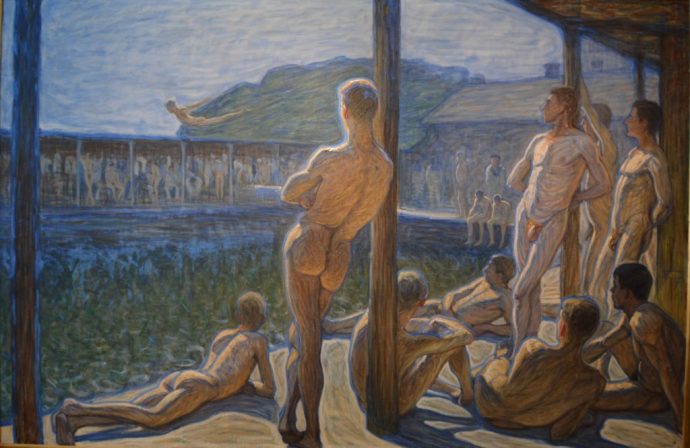
Vers and romantic gay Romans existed too
Not all gay relationships at the time were entirely one-sided of course.
Latin literature from the second and first centuries BCE is littered with homoerotic poems. They enthuse over desiring love and passion as well as just power.
The poet Catullus begs to steal kisses from ‘Your sweet eyes, Juventus’ in his poem Insatiable. In fact, he breaks from convention by addressing his yearning to a young freeborn man and not to a slave.
Tibullus takes a similar doting approach, placing personality and intellect above beauty and sexuality. In the poem ‘The Love of Boys’ he talks about snatching a kiss from his lover in the Italian countryside to win his affections.
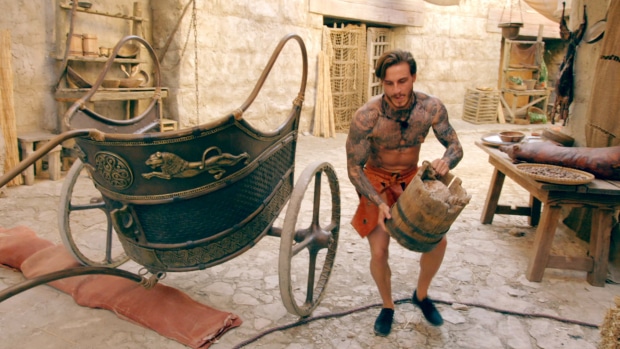
Emperor Hadrian defied society with his gay love
Historically the most high profile gay roman relationship included a Roman emperor.
Emporer Hadrian was a convention-bucking emperor before you even consider he was gay. Rather than expanding the empire, he actually pulled back the boundaries to a more defendable position. This did not sit well with the Romans – but did ensure the security of the empire.
As well as being anti-expansion, he was also very open about his sexuality. And publicly, although in a low key way, had a relationship with a young man named Antoninus. They would travel across the empire together on state trips. When Antoninus died on a visit to Egypt, Hadrian was so overcome with grief that he built monuments to him.
But even now, the historic scandal of their relationship was not because anyone objected to them having sex. It was simply because Hadrian fell in love with his boyfriend. The mere fact a man in power romantically doted on his ‘inferior’ male love defied the master and slave dynamic.
And it’s all because the highly patriarchal Romans saw women as weakness. Therefore overindulging in feminine romantic actions was weak too.
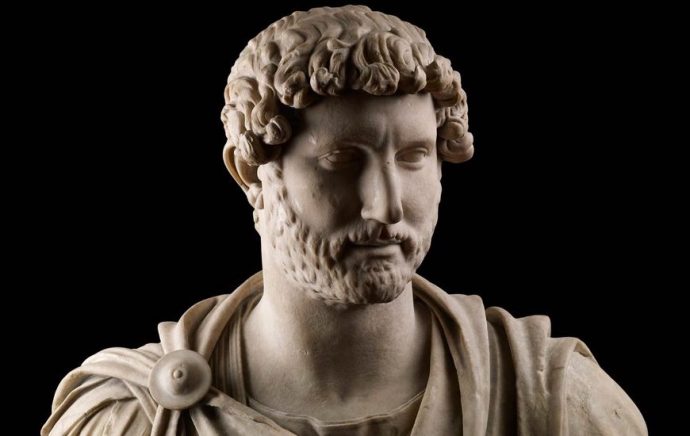
Attitudes towards gay sex changed as the Roman empire declined
Religion was part of the reason hardline homophobia crept into Roman society.
One part of this was an attempt to make 1st century Judaism more palatable to the liberal Greco-Roman readers. They did this by capitalizing on the distaste for passive and effeminate men to introduce anti-gay attitudes.
This is seen when the Jewish philosopher Philo (30 – 40 CE) wrote:
‘Much graver than [adultery] is another evil… it is a matter of boasting not only to the active but the passive partners, who habituate themselves to endure the disease of effemination, let both body and soul run to waste, and leave no ember of their male sex-nature to solder.’
But more crucial was when Emperor Constantine converted to Christianity on his deathbed in 337 BC. This decision would forever change the religious identity of the Roman Empire.
It cemented the idea that sexual and romantic union should be between a man and a woman, changing what had been until now an undercurrent of acceptance that gay sex happened.
Historical Novelist Richard Blake explains in one essay how it was always more difficult to have gay relationships at times the Romans had a declining population. But goes on to say, this was also true when the Empire was aggressively expanding.
And that’s because, for the Roman civilization that was eternally fighting in bloody wars – a high birth rate was the key to its survival.
Ultimately, the duty of a Roman man was to create future soldiers to fortify the Empire’s extending borders.
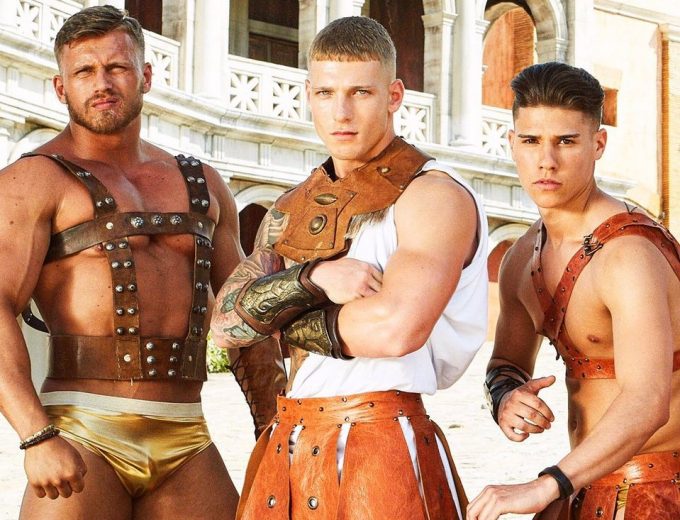
So if you did your duty too – who you fucked after was no concern to the rest – as long as you were the top of course.







